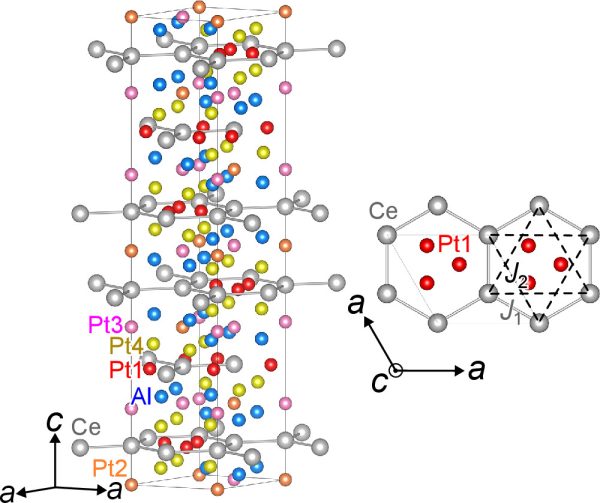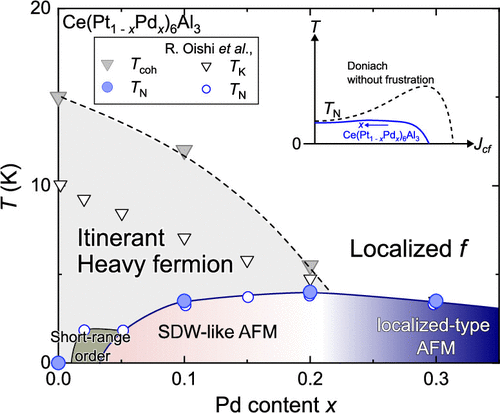Rare-earth-based intermetallic compounds with frustrated lattices—such as triangular, kagome, and honeycomb lattices—are expected to host unconventional quantum critical phenomena arising from the interplay of the Kondo effect and magnetic frustration. CePt6Al3 forms a honeycomb lattice of Ce atoms, where the effects of both Kondo effect and magnetic frustration are anticipated to play significant roles. To microscopically investigate the low-temperature magnetic states from, we performed nuclear magnetic resonance (NMR) measurements on the Pd-substituted systems Ce(Pt1−xPdx)6Al3. We confirmed that the heavy-fermion state persists down to 0.1 K for x=0, whereas Pd substitution induces antiferromagnetic ordered states. The magnetic transition temperature remains nearly constant with increasing Pd substitution. This behavior is distinct from that of typical heavy-fermion systems and suggests a contribution from magnetic frustration. Furthermore, we reveal a crossover from itinerant SDW-type to localized moment antiferromagnetism as the Kondo effect weakens. These findings establish Ce(Pt1−xPdx)6Al3 as a promising platform for exploring the cooperative effects of Kondo effect and magnetic frustration in heavy-electron systems.
The results of this study have been published in the Journal of the Physical Society of Japan.


Reference
Antiferromagnetic Order and Magnetic Frustration in the Honeycomb Heavy-Fermion System Ce(Pt1−xPdx)6Al3: 27Al and 195Pt NMR Studies Journal Article
In: Journal of the Physical Society of Japan, vol. 94, pp. 094702, 2025.
![]()
